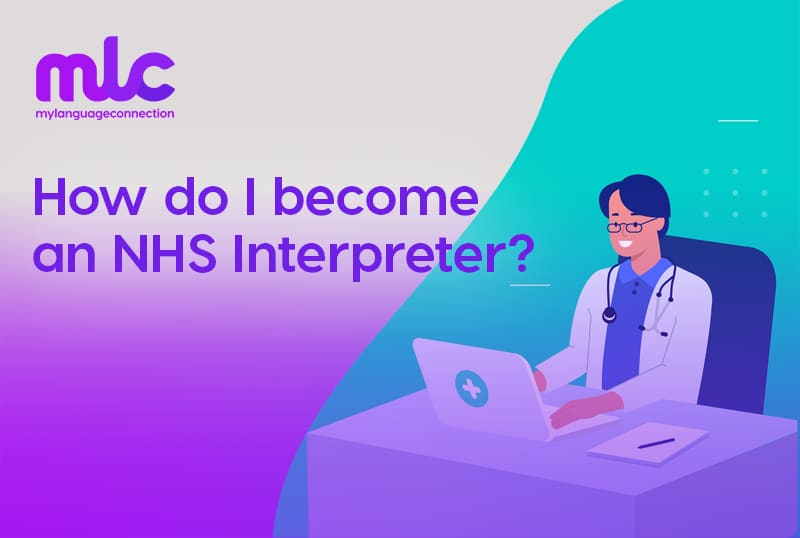Every patient has the right to access interpreter support and services from a qualified language expert. This is part of the NHS commitment to deliver quality patient care and services.
NHS UK deals with patients from various cultural and ethnic backgrounds. Therefore, the services of an NHS interpreter is valuable to support the needs of patients and to ensure that they get the quality care they deserve.
 Importance of Language Services for the NHS
Importance of Language Services for the NHS
It is every patient’s right to have access to a professional interpreter service via the NHS. A patient can hire his or her own interpreter or you can rely on the interpreter services provided by the NHS.
It is part of the NHS’ legal responsibility to make sure that the diagnosis and treatment recommendations are made clear to the patient. If cultural and language differences do not make that possible, access to interpreter services should be made available upon the patient’s request. It is also the NHS UK’s responsibility to offer an interpreter service, even if not required.
Discussing health matters with patients requires their full understanding of what their condition and supposed treatment entails. Without this, the patient is not fully equipped to make sound decisions that could impact their health condition.
What to Expect from NHS Interpreter Support
When working with an NHS interpreter, here are a few things that you must expect:
- The diagnosis must be communicated in your preferred spoken language or dialect.
- The service must be provided by a certified NHS interpreter.
- The translation service must be provided by a professional interpreter with a medical health background or knowledge.
The interpreted information should be reproduced in document format when the case is referred to another healthcare provider or facility. This will ensure the consistency of the communication at every stage of the treatment process.
 Benefits of NHS Interpreter
Benefits of NHS Interpreter
There are unique specifications and requirements that must be met by anyone that aspire to become an NHS interpreter. This offers various benefits not just for the patient, but also for the NHS as an organisation:
- It ensures the accuracy of the information being interpreted. The information should be impartial and delivered in an objective manner.
- It reduces the potential legal drawbacks resulting from misinformation or misinterpretation of vital clinical information concerning a patient’s diagnosis or treatment.
- It puts priority on the health and safety of patients.
- It builds trust among patients and give them confidence when making decisions that impact their health.
How to Become an NHS Interpreter
If you want to have a career as an NHS interpreter, you must meet the qualification and certification requirements for the job. Becoming an interpreter entails a serious job with serious risks, especially in the medical field. The most important qualification is the ability to fluently speak various languages to work as an interpreter.
First off, you must meet the basic educational qualifications of an interpreter. While education and certification are not required to become an interpreter, it is best to acquire them to ensure your aptitude. There are formal and informal courses available for those who want to become an NHS interpreter. The specific type of interpreting job that you wish to pursue will also determine the qualifications you must meet.
Once you have completed your interpretation course, you can get experience through internships with various interpretation agencies. You can also look at various universities for positions such as language assistant teacher roles. This will enable you to immerse in the language that you want to focus on so you can gain advantage and use this language as part of your daily life. Experience is as beneficial as completing a language degree for aspiring NHS interpreters.
 It’s important to note that translation and interpreting jobs are not the same. Translators work with a text from one language and translate it to another. This translated text is adapted using cultural context in the translated text. Translators also specialize in a particular industry as they take into account the language variations for each use.
It’s important to note that translation and interpreting jobs are not the same. Translators work with a text from one language and translate it to another. This translated text is adapted using cultural context in the translated text. Translators also specialize in a particular industry as they take into account the language variations for each use.
On the other hand, an interpreter deals with spoken word and can work in a variety of industries. While language translation does not need to be a word-for-word translation, interpreters have to be as faithful to the context, style, and content of the message being interpreted as much as possible. Traditionally, interpreter services are done face-to-face but it can also be delivered via phone or video.
Due to the nature of the interpretation services, a qualified interpreter must possess fantastic listening skills. The accuracy of the body language and tone should be taken into consideration. But the most important quality of a language interpreter is the ability to process the information in their head and interpret it to the target audience instantaneously.
If you want to become an NHS interpreter, it is important to meet the specified qualifications. This service has overcome language barriers in the medical field to give patients better understanding of diagnosis and in making decisions regarding their treatment. As an interpreter, you play an important role in bridging the gaps in medical communication such that patients such that you can reduce the possibility of misinformation or communication gaps could result in risks to a patient’s health.

